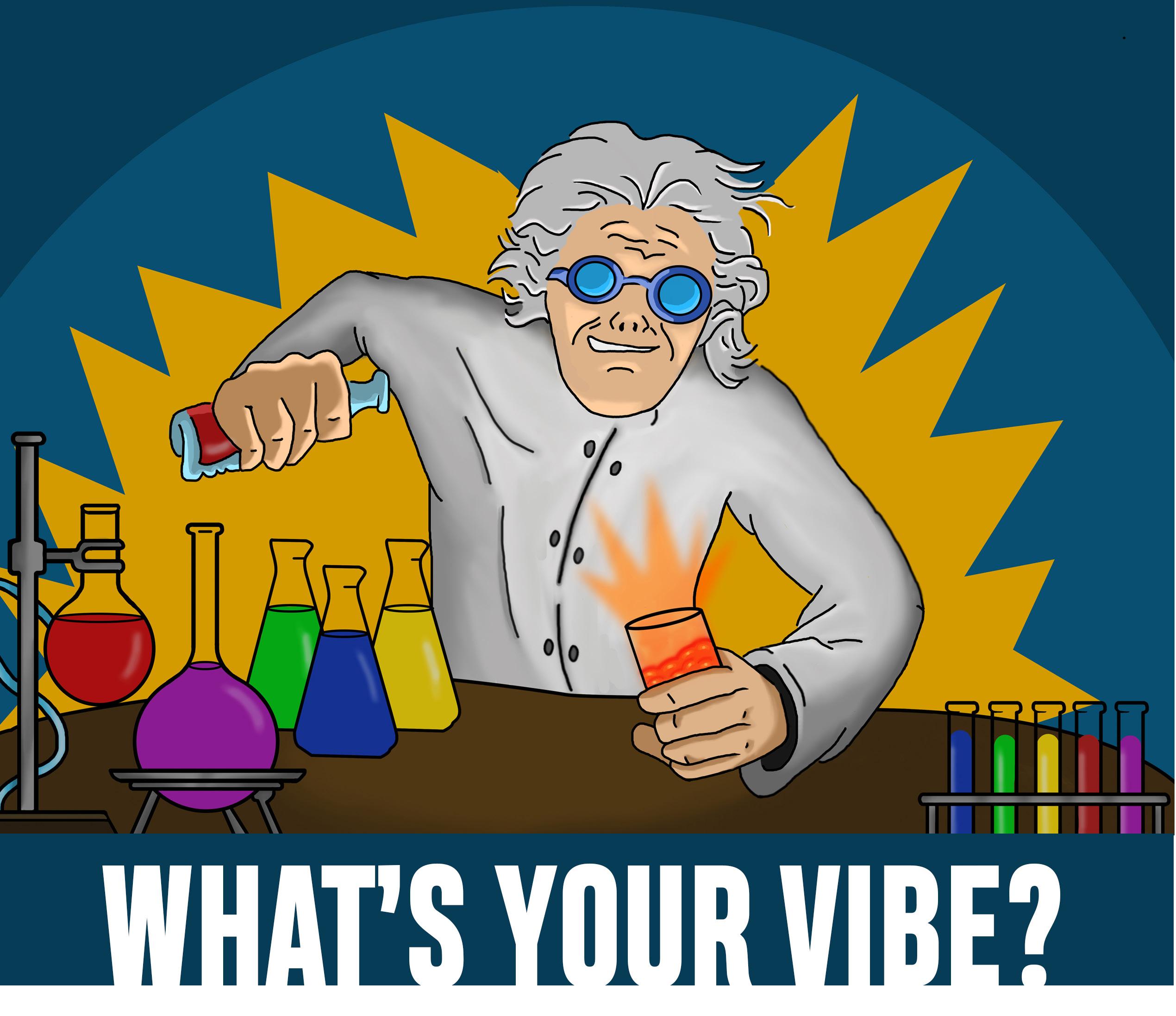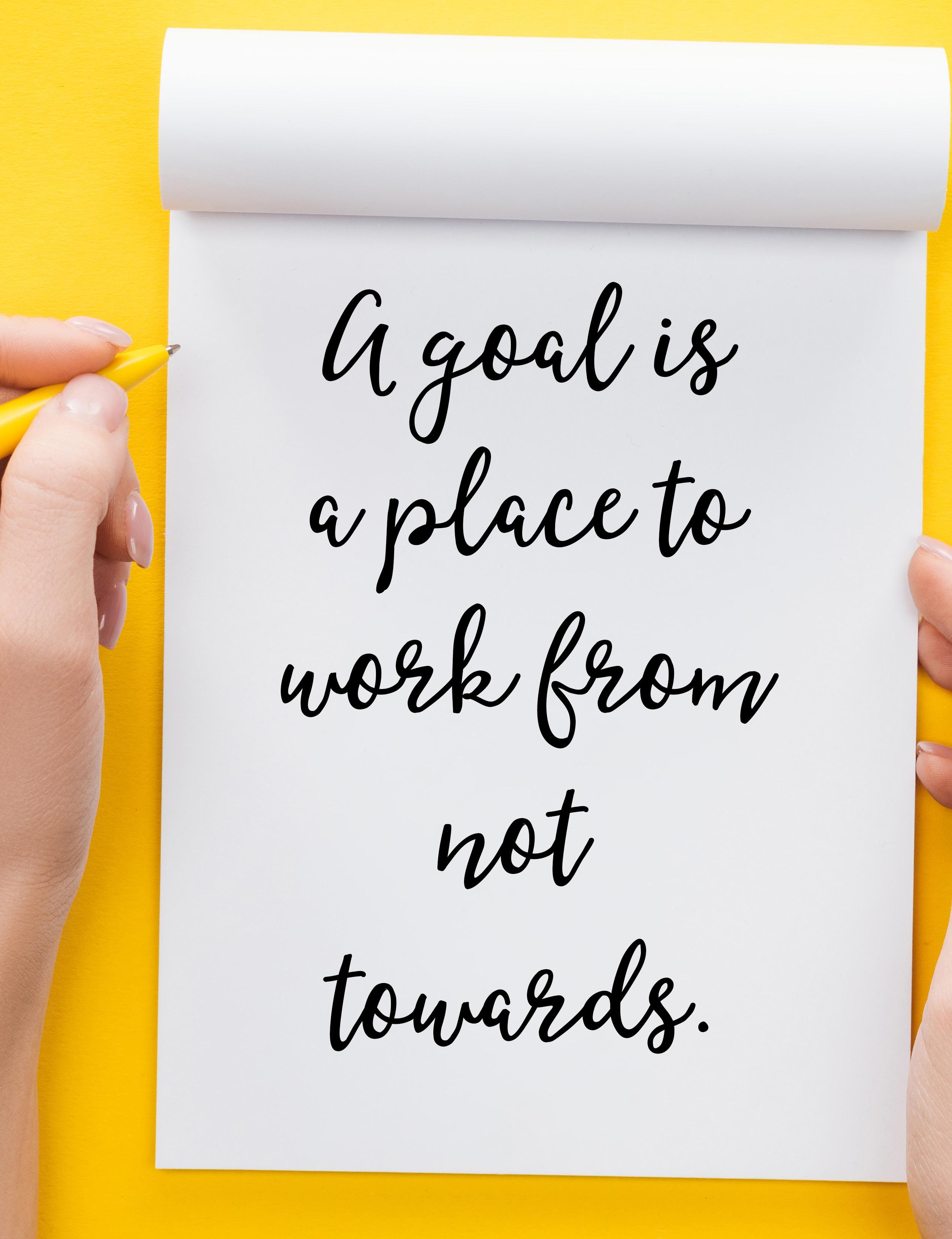
7 minute read
Nothing in Your Life is Wasted
great opportunity, making what you’ve always thought of as a giant “mistake.” What you put down doesn’t have to be momentous or meaningful to anyone else. Sometimes the most trivial moment can be a stupendous turning point. When I did this exercise with a friend, she wrote, “Craving a Mounds bar.” Why?
As she ran to a local newsstand to buy a quick pick-up, she literally bumped into the man who propelled her into journalism, a desire she’d craved since early adolescence. After the apologies, she discovered he was the editor of a city newspaper, and his encouragement led her to go to journalism school. When she graduated, she looked him up, and he promptly gave her a freelance assignment. She later became the feature editor on his paper. 3) When you’ve got a good list down, look at it. It doesn’t have to chronicle everything. Now that you’ve opened the door, you’ll very likely think of more things later, and you can always add to the list. 4) Take a deep breath and really look at your list. Ask your mind to reveal the connections. Sometimes they’ll be prompted by looking at a relatively recent event or outcome and asking yourself, “How did I get there?” 5) Reflect more and free associate. As you quietly listen to yourself, like the journalist you’ll start to see things: “If I hadn’t done this, I wouldn’t have encountered that. If I hadn’t missed the train, I wouldn’t have met Ann. If I’d taken that job, I wouldn’t have had to develop my letter-writing skills, and I wouldn’t be writing a novel-inletter-form now.” 6) Start numbering the items in their connective sequences. For some, the connections will be instantly obvious, like my office job to computer skills. For others, you may not immediately see the line, but as you keep reflecting on your list, your mind will give you more links. You’ll also begin to see obvious groupings of events—the windshield sticker of a college that led to your finding the perfect course to register for that led to your professional certificate that led to a great job that led to meeting the person you married. 7) Put your list away in a private place. No one else has to see it to question, deride, laugh, or pull it apart. 8) In a day or two, revisit the list. Many more insights will come, and you’ll uncover more relationships. 9) Acknowledge these relationships. They’ll help you see, again, that no experience is wasted and in fact is absolutely necessary for your growth. 10) Finally, with your new knowledge and recognition, forgive yourself for all those past “wastelands,” as Smock calls them. Even if you think you’re not ready to stop blaming yourself, try it. Just repeat, “I forgive myself. No mistakes. Nothing in my life is wasted.” Repeat and repeat.
Advertisement
Sooner or later, as you keep saying these words, slivers of self-absolution will peek through. You’ll feel lighter and more energized. You’ll even feel moments of inexplicable happiness.
And you’ll look at your past anew, discover its blessings, and use their richness in all your ongoing experiences. Then you’ll truly know that nothing in your life is wasted.
Trust Your Life Now
with Noelle Sterne, Ph.D. Noelle Sterne is an author, editor, academician, writing coach, mentor, and spiritual counselor. She has published over 600 pieces in print and online venues, including Author Magazine, Chicken Soup for the Soul, Children’s Book Insider, Fiction Southeast, Funds for Writers, Inspire Me Today, Rate Your Story, Romance Writers Report, Textbook and Academic Association Authors blog, Transformation Coaching Magazine, Unity Magazine, Women in Higher Education, Women on Writing, The Writer, and Writer’s Digest. Noelle’s invited blogs on Author Magazine’s “Authors’ Blog” on writing, creativity, and spirituality can be found at http://www.authormagazineonline.wordpress.com/. A chapter appears Transform Your Life (Transformation Services, 2014). Spiritually-oriented stories appear in Chicken Soup for the Soul: Touched by an Angel (2014), another in a Tiny Buddha collection (HarperOne, 2015), and another in Chicken Soup for the Soul: The Forgiveness Fix (2019). Noelle has a Ph.D. from Columbia University and for over 28 years has assisted doctoral candidates in completing their dissertations (finally). Based on her practice, her handbook for graduate students helps them overcome largely overlooked but equally important nonacademic difficulties: Challenges in Writing Your Dissertation: Coping with the Emotional, Interpersonal, and Spiritual Struggles (Rowman & Littlefield Education, 2015). In Noelle’s book Trust Your Life: Forgive Yourself and Go After Your Dreams (Unity Books, 2011), she draws examples from her academic consulting and other aspects of life to help readers release regrets, relabel their past, and reach their lifelong yearnings. Her webinar about the book can be seen on YouTube: http://www.youtube. com/watch?v=95EeqllONIQ&feature=youtu. Noelle’s website: https://www.trustyourlifenow.com.
What’s Your Vibe?
The more positive your marketi ng word s are, the more positive your client s will be.
It was a beautiful spring day in the Colorado Rockies. Without much coaxing, we took the day off, packed a lunch, and hit the road. The first dirt road off the main highway went up the mountain to a clearing where we had a picnic and marveled at the grandeur.
Just as we finished, it started to rain. We had to choose whether to go back the way we came, or continue along the dirt road to see where it led. Explorers that we were, it was an easy choice. Onward!
The road was fine, but de- serted. Many miles through the rain and into the woods we saw no signs of people. After 10 miles or so, we rounded a curve and came upon a stone and iron gateway. Embedded into the stone was a metal plate that said, “DORMANT BRAIN RESEARCH LABORATORY.”
Visions of Dr. Frankenstein and weird experiments came to mind. We decided not to seek shelter there. Rain, dirt road or not, it was pedal to the metal time.
Not a hundred yards past the gate, part of the road was washed out. Once again, we decided not to turn back, this time driven more by panic than curiosity. We had no idea where the road led, but it had to be someplace else. At the cost of a wheel align
ment and flat tire, we made it over the wash and down the mountain.
We later reflected on the experience. There had to be a lesson somewhere. Can you put together any four words more ominous than “Dor- mant Brain Research Laboratory?” These people, whoever they were, did not want to be found.
They could have been leftover hippies from the ‘60s. Perhaps a hidden colony of extra-terrestrials planning to take over Earth. We concluded it was a lesson in marketing.
We learned that words have vibes. Even the lab later softened their name to “Dormant Brain Research and Development laboratory. See how the feeling changed, just by adding the positive word “development.”
At the time, we led workshops and did counseling/coaching in relationships. Our promotion followed the routine of those of limited knowledge. Words like “suffering,” “frustration,” and “abuse” were common on our flyers and communication. We thought people would relate to them. Yep, they did. We got clients who were deep into self-pity and resistant to the concepts we taught. We called such depressing words “Dormant Brain” and filtered them from our vocabulary. Instead, we used words like “happy, powerful and love.” We called them the “WooHoo” words. Bull’s eye! Our clientele increased in numbers and commitment. They were more open and got better results.
Don’t get me wrong. Dormant Brain marketing works and is popular yet today.
Two successful TV commercials give perfect examples of the difference. Both were for excellent children’s hospitals; both asked for the same donation.
One showed a sad li’l kid with a shaved head nestled in his mother’s arms. It talked about deaths from childhood cancer and how they could reduce the rate.
The other showed children playing, in wheelchairs, on crutches and with prosthetics. They were happy, smiling, and the narration stressed the love.
Both approaches get plenty of donations, I’m sure. Both hospitals are topnotch, yet each ad resonates to a different vibration. One appeals to sympathy, the other to celebration.
As heart-centered coaches, those we want to attract might be more inclined to celebrate. Get ’em off to a good start. Dwell on the solution, not the problem; results, not methods; and celebration, not effort. Go from “Dormant Brain” to “WooHoo.” You’ll be glad you did.
And so will your clients.
Happiness is BS with Gregg Sanderson
Gregg Sanderson is author of Spirit With A Smile, The World According To BOB. He is a licensed practitioner in the Centers for Spiritual Living, and a Certified Trainer for Infinite Possibilities. His earlier books were, What Ever Happened To Happily Ever After? and Split Happens—Easing The Pain Of Divorce. His latest project is the New Thought Global Network, where subscribers can enjoy the best in New Thought presentations from anywhere at any time. You can see it at http://www.newthoughtglobal.org.
Why A Goal Is A Place To Work From, Not Towards











